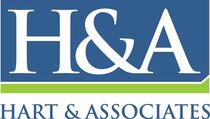|
Are you confused about your choices for paying medical expenses under your employer's benefit plan? Here are differences between two types of commonly offered accounts: a health savings account (HSA) and a health care flexible spending account (FSA). Overview An FSA is generally established under an employer’s benefit plan. You can set aside a portion of your salary on a pretax basis to pay out-of-pocket medical expenses. An HSA is a combination of a high-deductible health plan and a savings account in which you save pretax dollars to pay medical expenses not covered by the insurance. Contributions For 2016, you can contribute up to a maximum of $2,550 to an FSA. Typically, you have to use the funds by the end of the year. Why? Unused amounts are forfeited under what’s commonly called the “use it or lose it” rule. However, your employer can adopt one of two exceptions to the rule. If you are single, the 2016 HSA contribution limit is $3,350 ($6,750 for a family). You can add a catch-up contribution of $1,000 if you are over age 55. You do not have to spend all the money you contribute to your HSA each year. You can leave the funds in the account and let the earnings grow. Earnings FSAs do not earn interest. Your employer holds your money until you request reimbursement for qualified expenses. HSAs are savings accounts, and the money in the account can be invested. Earnings held in the account are not included in your income. Withdrawals Distributions from both accounts are tax- and penalty-free as long as you use the funds for qualified medical expenses. Portability Normally, your FSA stays with your employer when you change jobs. Your HSA belongs to you, and you can take the account funds with you from job to job. That’s true even if your employer makes contributions to your HSA for you. Because you generally can’t contribute to both accounts in the same year, understanding the differences can help you make a decision that best fits your circumstances. This is general information and should not be acted upon without first determining its application to your specific situation. Please contact your CPA or tax advisor for additional details.
Comments are closed.
|
AuthorSuccessfully meeting the challenges inherent to new and smaller businesses provides me with a special type of satisfaction. Archives
February 2022
Categories
All
|


 RSS Feed
RSS Feed







